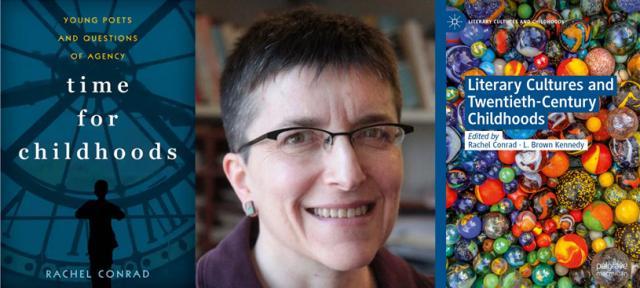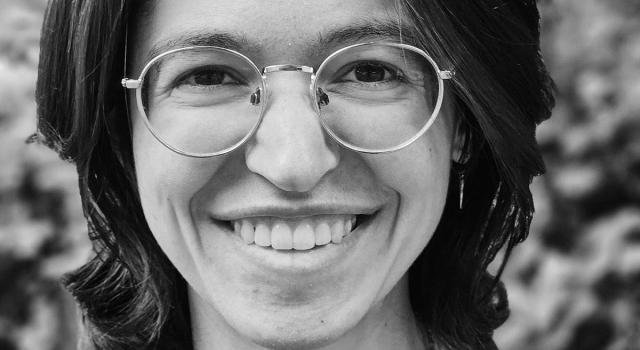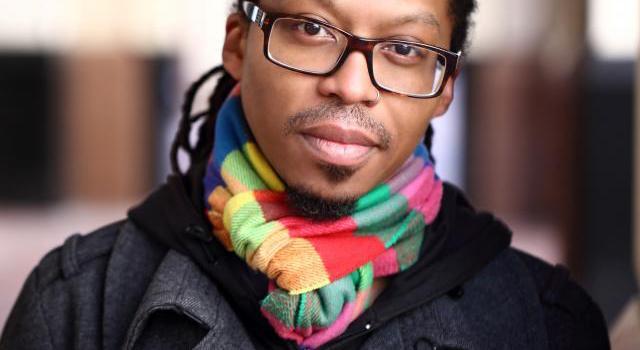Hampshire Professor Rachel Conrad Recognizes and Advocates for Young Creators of Literature

Teaching at the College intersects with her own writing on youth authors, environmentalism, and social justice.
We spoke to Hampshire College Professor of Childhood Studies Rachel Conrad about her courses and the ways in which they have influenced her recent publications.
What does being a faculty member at Hampshire allow you to do that you couldn’t do elsewhere, and what excites you about teaching here?
Part of what I value about teaching at Hampshire is being able to create and evolve classes about topics that really matter. I wouldn’t be able to do that elsewhere because of the courses’ priorities and the ways they cross disciplinary boundaries. These classes become spaces of shared discovery for both Hampshire students and me.
In recent years, through my background in literature and childhood studies, I’ve created courses that focus on young people as creators of literature and not just consumers of adult-produced culture. It’s pretty rare for college courses to include texts written by young people on the required-reading list, let alone to have youth-authored texts be the primary reading materials for a course. The students in these classes inspire me to keep working at finding ways to center young people as artists and activists.
What are some of the classes you teach and how do they connect to your own research or scholarship?
This spring I taught a course, for the second time, called Reframing Young Writers, which involves case studies of young writers engaging with contexts of injustice through the forms of diary/memoir or poetry. After the semester ended, I was invited to write an article on Anne Frank, whose diary had been a major component of the course, for the Washington Post’s “Made in History” feature. This summer marks the 75th anniversary of the publication of Anne Frank’s diary, and, in my article, I discuss how her own intentions as a writer have been largely neglected for those 75 years.
My course Youth Writing for Justice centers on nonfiction writing by young activists on racial, climate, and environmental justice. Before I taught the course for the first time, I had written a scholarly article on two texts by young climate activists we study—Xiuhtezcatl Martinez and Greta Thunberg—for a special issue of the journal The Lion and the Unicorn on children’s literature and climate change. After I convinced the creators of a new climate literacy website to incorporate a category for youth-authored books, I ended up writing reviews of the major books we read in the class. That’s been typical of my experience doing this work—that it requires advocating for young authors to be included in a project.
Part of what I value about teaching at Hampshire is being able to create and evolve classes about topics that really matter. I wouldn’t be able to do that elsewhere because of the courses’ priorities and the ways they cross disciplinary boundaries.
Rachel Conrad
Tell us about your recent publications.
I have two recently published books that intersect with my classes. Over the years, I’ve had wonderful students in my classes on poetry and childhood; eventually, the background for those classes led me to develop my 2020 book, Time for Childhoods: Young Poets and Questions of Agency. In it, I make an argument for the importance of recognizing young poets as artists and cultural creators, and I look specifically at different ways that young poets shape and manipulate time in their poems as ways of asserting their agency and control over time.
My other recently published book emerged from 20 years of co-teaching with Brown Kennedy, professor emerita of literature. At the end of that run, we co-edited a book of essays, Literary Cultures and Twentieth-Century Childhoods, which grew from some of our values and interests in teaching together about literature of childhoods. The book is about texts for young and adult audiences that construct child voices, challenge received notions of childhood, speak to the multiplicity of children’s experiences and perspectives, and participate in cultural and political projects. It also contains a set of chapters on young people’s creation and co-creation of literary-cultural texts and projects, one of which was the public television show ZOOM, from the 1970s, that interested me as a young person. The book received an honor award for outstanding book of literary criticism from the Children’s Literature Association.
What are you working on now?
My current scholarly project is on young African American poets writing in the 1960s and 1970s, and focuses on their artistry and social-political critique. I’m really interested in how young Black poets engaged with crucial themes and issues that resonated during that era. I’ve been writing a couple of scholarly articles on this topic and I plan to use my upcoming sabbatical to do further research toward framing it as a book project.



